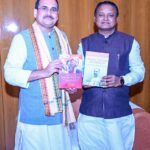Heed JP’s Ignored Legacy to Preserve Democracy
- By : Anirban Ganguly
- Category : Articles
The political leader, whom the Congress party led by Indira Gandhi decided to throw in prison 40 years ago simply because he dared to oppose fascism and the growth of political intolerance and who at an advanced age took the lead in protecting India’s democratic experiment, was also a profound thinker and philosopher. It is only because Jayaprakash Narayan’s (JP) vision of India and of Indian politics was antithetical to dynastism or to the single ‘Idea of India’ as regurgitated ad nauseam by the Nehruvian Left in India that he has been rarely discussed or examined in the last four decades.
Except for a few intellectual and academic groups, his legacy has been suppressed assiduously by those who opposed his politics, incarcerated him or saw in him the signs of failure and frustration. A section among the Marxists and the broader Left intelligentsia who collaborated with those who attempted to stifle India’s democratic breath in the summer of 1975 has falsely satisfied itself by floating one of their most cherished theories—that resistance to Indira’s Congress in the early 1970s and the opposition to the Emergency that she imposed was essentially a unity of reactionary elements represented by landed gentry, big bourgeois, big capital and so on.
These elements, of course, can never appreciate that the resistance to Emergency was essentially a struggle to preserve India’s civilisational soul, her democratic ethos and the possibilities of her rise in the future as a self-reliant and reliable power. JP, by his leadership of the movement to preserve and protect democracy, symbolised that struggle. Unfortunately, while one political section—the dynasty-led Congress—was busy in suppressing JP’s legacy, much in the same manner that it did for Kamaraj’s legacy and other stalwarts of the Party who had a mind, a base and a vision of their own, another section which had seen its political career start under JP’s leadership jettisoned his legacy and have now jumped on the bandwagon of those very forces that intimidated him. Bihar’s politics is a stark case in point of how those nurtured by JP abandoned his legacy, displaying a spirit of brazen political opportunism.
JP’s articulations on the Indian polity, his aspirations and vision of the direction-free India ought to take, his ceaseless debates with himself, with his ideas and with those who adhered to his philosophy provide a fascinating corpus of thought that is worth examining and disseminating. These continue to act as anchors and signposts for those who wish to truly and effectively create a new narrative for India, a narrative that is aspirational in nature and looks to comprehensively transform the political landscape. The first step in that was, as JP argued, to focus on creating a nation of not only “prosperous but also of good men”.
While at the helm of the anti-Emergency movement, JP continued to publicly articulate his concerns and exhortations for the evolution of an ethical polity. Writing for his weekly Everyman’s sometime in 1973, he talked, for instance, of the need to know the limits which politics in a democracy may cross. His articulation clearly reflected the ominous manifestations that were to follow within two years. He wrote, “I know politics is not for saints. I am no saint myself presuming to preach a sermon to others. But politics, at least under a democracy, must know the limits which it may cross. Otherwise, if there is dishonesty, corruption, manipulation of the masses, naked struggle for personal power and personal gain, there can be no socialism, no welfarism, no government, no public order, no justice, no freedom, no national unity—in short no nation.”
JP’s struggle for democracy and the sacrifice of his last ounces of energy were essentially to preserve that nation.

















